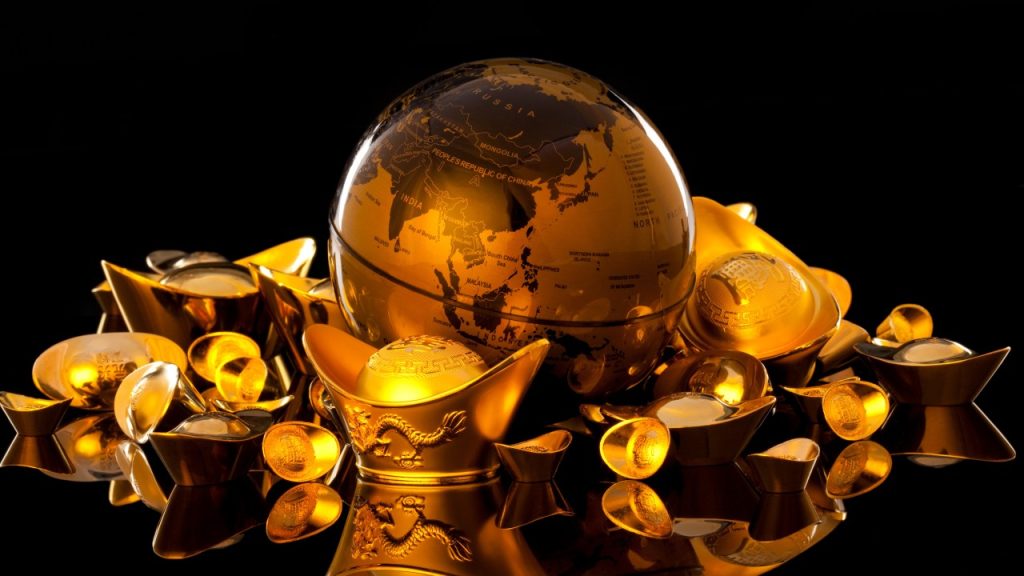As Ramadan unfolds, bringing a period of spiritual reflection and community gatherings, gold takes center stage, not just as a cherished Eid gift but as a time-honored investment choice. Muslims have long viewed gold as a halal, stable, and tangible asset, aligning with Islamic finance principles that emphasize risk-sharing and the avoidance of speculation. The question arises whether Ramadan truly presents the right time to invest in gold or if the seasonal surge in demand is merely a tradition-driven phenomenon.
Gold has historically played a pivotal role in Islamic finance, regarded as a store of value that transcends economic uncertainties. Unlike interest-based investments (riba), which are prohibited in Islam, gold trading is permissible under Sharia law as long as transactions are conducted with full transparency and immediate exchanges. This makes gold a favored asset for Muslim investors, particularly during Ramadan, when financial decisions are often made with a long-term, ethical perspective.
In Malaysia, where gold holds both cultural and financial significance, demand typically surges during Ramadan and ahead of Eid. According to data from the World Gold Council, the country saw a significant increase in gold demand during Ramadan 2023, driven largely by consumer purchases for Eid jewelry and wedding preparations. Gold-backed investment accounts offered by Malaysian Islamic banks also experience an uptick, as investors seek secure and Sharia-compliant ways to preserve their wealth. Meanwhile, in New Zealand, where the Muslim population is steadily growing, gold investment is gaining traction among faith-conscious investors. While not as culturally ingrained as in Malaysia, the trend of investing in gold during Ramadan is becoming more evident, particularly among second-generation Muslim professionals and business owners who seek ethical and inflation-proof investment options.
One of the most pressing questions for investors is whether Ramadan presents an ideal window for buying gold. Historically, gold prices exhibit seasonal fluctuations, often rising during major festivals and economic uncertainties. A closer look at gold price trends over the last decade reveals that prices often see moderate increases during Ramadan due to heightened demand, but this is usually followed by price corrections post-Eid. In 2023, global gold prices saw a 3.2% rise in the lead-up to Eid, driven by increased retail purchases across Muslim-majority countries. However, by mid-Shawwal, the Islamic month following Ramadan, prices stabilized as demand tapered off.
For Muslim investors the decision to buy gold during Ramadan hinges on several factors. If the goal is long-term wealth preservation, gold remains a reliable asset regardless of seasonal price movements. Historically, gold has provided a strong hedge against inflation and currency depreciation, making it a safe investment even in volatile economic conditions. However, short-term investors looking for quick gains should be mindful of potential price dips post-Ramadan and may prefer to time their purchases strategically.
Islamic financial institutions have recognized the growing demand for Sharia-compliant gold investments and have introduced innovative products to cater to faith-based investors. Gold savings accounts, physical gold-backed Sukuk (Islamic bonds), and gold ETFs certified as halal are gaining popularity, particularly in Malaysia, where Islamic finance is deeply embedded in the banking system. In New Zealand, where such options are limited, Muslim investors often rely on international halal investment platforms to access gold markets in a Sharia-compliant manner.
Beyond investments, gold remains an intrinsic part of Ramadan and Eid traditions, symbolizing prosperity, generosity, and long-term security. Families purchasing gold jewelry for Eid gifting, couples investing in gold ahead of weddings, and individuals choosing gold as a Zakat-eligible asset all contribute to its sustained demand. Ultimately, while Ramadan sees a surge in gold purchases, whether it is the best time to invest depends on individual financial goals and market conditions. For those seeking a stable, halal investment for wealth preservation, gold remains a strong contender, regardless of seasonal price variations. However, for those looking for short-term gains, a more strategic approach to timing purchases before or after the Ramadan peak may yield better results.
As gold continues to hold its luster in Islamic finance, its appeal during Ramadan is more than just a cultural tradition—it is a financial strategy, a symbol of stability, and a reflection of ethical investment principles that have guided Muslim communities for centuries. Gold remains a timeless asset that bridges faith and finance, offering Muslim investors a way to secure their wealth in a manner that aligns with both tradition and economic prudence.
#HalalInvestment #IslamicFinance #GoldInvestment #ShariaCompliance #EthicalInvesting #GoldTrading #WealthPreservation #IslamicBanking #RamadanFinance #GoldSavings #IslamicWealth #HalalWealth #ZakatEligible #InflationHedge #GoldMarket #GoldETF #IslamicBonds #Sukuk #GoldGifting #EidInvestments #FaithBasedFinance #ShariaGold #IslamicEconomy #EthicalFinance #GoldForFuture #RamadanInvesting #FinancialStability #GoldAsAnAsset #IslamicTrading #HalalPortfolio

